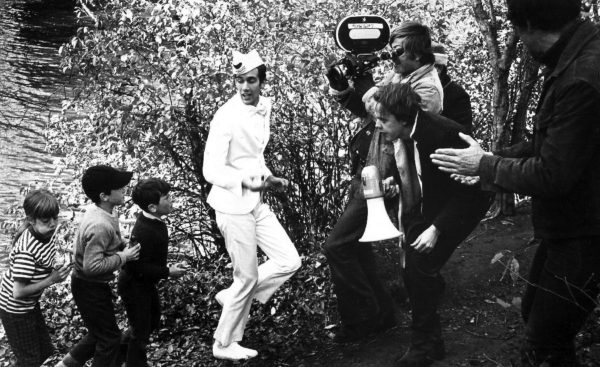

AMIA’s mission is dedicated to the preservation and use of moving image media. We support public and professional education and foster cooperation and communication among the individuals and organizations concerned with the acquisition, preservation, description, exhibition, and use of moving image materials.
As part of this work, AMIA believes that advocacy is essential for promoting the importance of archives and archivists as the stewards of our media heritage.
Advocacy has been part of AMIA’s framework since its inception in 1991. This Advocacy Policy sets forth guidelines for AMIA’s involvement in advocacy, whether at the local, state, federal or international levels and the procedures for determining how, when, and to what extent AMIA should become so involved.
As an organization that values social responsibility, the public good, and the accuracy of the public record, AMIA also encourages its members to engage in advocacy as individuals, in accordance with their own values and priorities.
AMIA recognizes that its members have a diverse set of interests, philosophies, backgrounds and beliefs. As members of the association, they have in common their commitment to the preservation and use of audiovisual media.
Accordingly, AMIA’s interests necessarily focus on particular issues that are in alignment with the Association’s mission, vision, and values statements. Advocacy issues affecting independent, community, regional, national, and international heritage institutions may include:
With input from the Advocacy Committee, the AMIA Board will regularly review and may supplement or modify the issues set forth above to meet broadly supported interests or needs of its members.
Advocacy is a process of influencing outcomes and consists of organized actions to address an issue. To be effective, advocacy requires being part of broader longer-term programs with full involvement from the membership, building trust, relationships, and partnerships with stakeholders, influencers, and decision makers. AMIA performs advocacy activities that fall into three categories along a wider spectrum: proactive advocacy, passive advocacy, and reactive advocacy.
On some occasions, AMIA may choose to independently take a position; on others to be a signatory on a statement prepared by another group. In The Board or the Advocacy Committee may provide a forum to solicit comments from membership through a survey, emails to the membership, discussion forums, or other means.
The nature, timing and degree of AMIA involvement will necessarily vary depending on the matter and issue and available resources. AMIA generally should refrain from becoming directly involved in any matter where a substantial proportion of AMIA members may be opposed to such involvement.
Consultation with membership and, when applicable, community outreach is encouraged to inform which advocacy action is the most appropriate. Precautions should be taken when advocating for controversial positions such that any position taken is with careful consideration given to the AMIA membership and stakeholders.
In connection with any advocacy matters, individual members of AMIA and the Board may not suggest that they are speaking for or on behalf of AMIA unless specifically authorized to do so by the President or the Board of Directors, depending on the nature and urgency of the matter.
The Advocacy Committee and the AMIA Board should use the following in the reviewing issues before developing and implementing any action:
The following questions should be answered affirmatively:
Then, the following questions should be answered in the negative:
If these questions can be answered to the satisfaction of the Advocacy Committee and the Board and a majority of the Board are in favor of the Association taking the proposed action, then the Association could do so.
Any matters involving litigation, such as AMIA statements in support of or in opposition to a litigant, or the filing of any briefs by or on behalf of AMIA, must be approved by the AMIA Counsel.
The AMIA Advocacy Committee encourages AMIA members to bring advocacy issues forward to the Committee.
As you answer the questions below, please provide as much detail as possible in order for the Committee and the AMIA Board to be able to make the best decision on this issue on behalf of AMIA. For urgent matters, please contact AMIA President, Rachael Stoeltje, at amiapresident@amianet.org.
Our thanks in advance for your contribution!